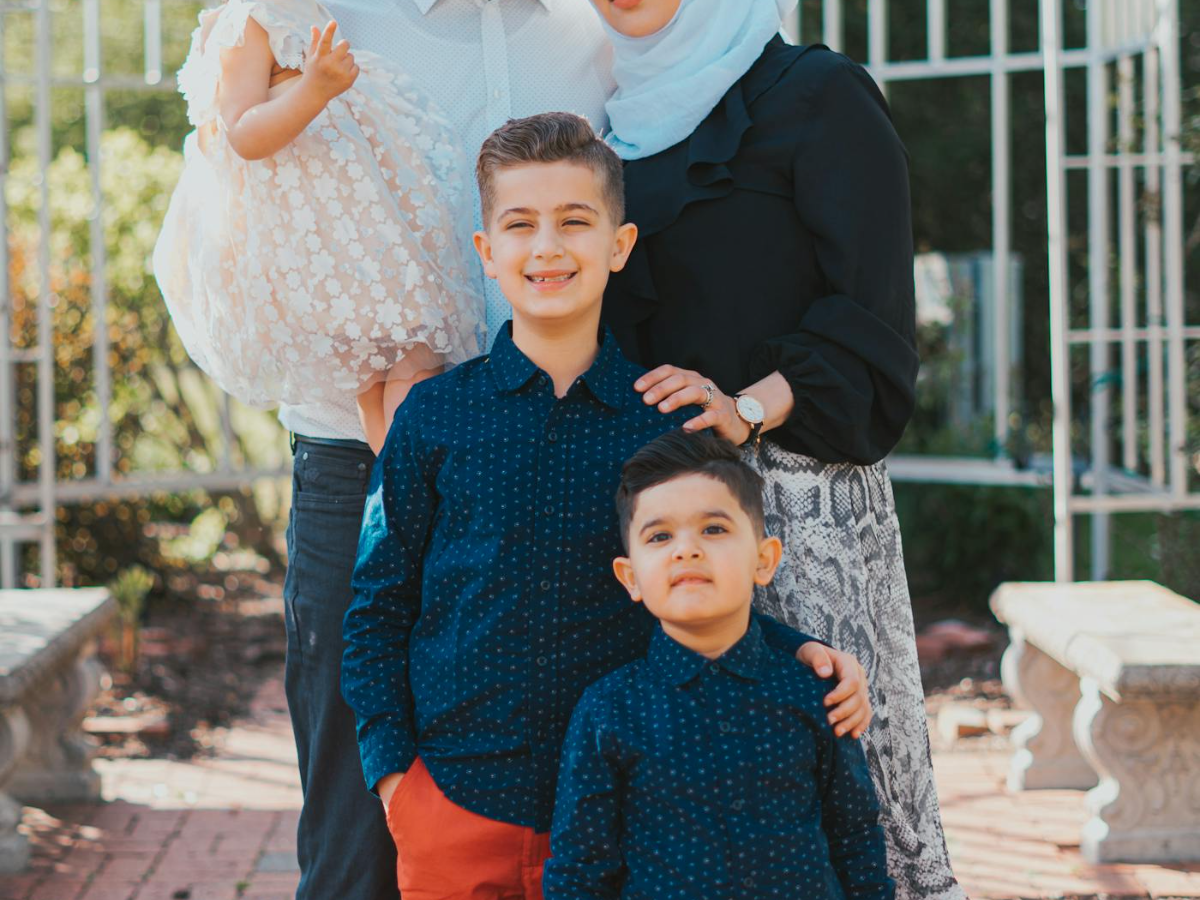11 Phrases That Reveal You Were Raised by Narcissists
How Childhood Narcissistic Abuse Shapes Your Internal Dialogue
Quick Answer: Adults who grew up with narcissistic parents or caregivers often unconsciously repeat 11 self-defeating phrases: “I don’t want to be a burden,” “I’m not good enough,” “It’s always my fault,” “I deserve this,” “I can’t trust my own judgment,” “I’m just being dramatic,” “I’m too sensitive,” “I have to be perfect,” “I’m always messing things up,” “I’m a failure,” and “It’s easier if I just do it myself.” These phrases reflect deep-seated beliefs formed through chronic invalidation, gaslighting, and emotional neglect during formative years.
The words we say to ourselves matter profoundly—they shape our self-perception, influence our relationships, and guide our life choices. But what happens when our internal dialogue was written by people who consistently invalidated, criticized, and manipulated us?
Children raised by narcissistic parents or surrounded by narcissistic caregivers develop specific thought patterns and self-talk habits that persist well into adulthood. These automatic phrases reveal the psychological imprint of growing up in an emotionally toxic environment.
Understanding these verbal patterns is the first step toward healing and reclaiming a healthier narrative about yourself.
The Lasting Impact of Narcissistic Parenting
Narcissistic parents create household environments centered entirely around their own needs, emotions, and ego. Children in these homes learn early that their worth is conditional, their feelings are inconvenient, and their existence serves the parent’s emotional regulation rather than their own development.
How Narcissistic Parents Shape Children’s Self-Perception
Conditional love: Affection and approval are granted only when children meet specific standards or behave in ways that please the parent.
Emotional invalidation: Children’s feelings are dismissed, minimized, or mocked, teaching them their emotional experiences don’t matter.
Gaslighting: Parents distort reality, deny their harmful behaviors, and convince children to doubt their own perceptions and memories.
Role reversal: Children become responsible for managing their parents’ emotions, creating inappropriate responsibility and guilt.
Comparison and criticism: Constant negative feedback and unfavorable comparisons to others erode self-esteem.
Unpredictable responses: Inconsistent reactions to similar behaviors create anxiety and hypervigilance.
These dynamics don’t end when children leave home—they become internalized voices that continue the criticism, invalidation, and control throughout adulthood.
11 Phrases That Signal Narcissistic Upbringing
1. “I Don’t Want to Be a Burden”
This phrase reflects a deep-seated belief that your needs, feelings, and existence inconvenience others.
The origin: Children of narcissists learn that asking for help, expressing needs, or requiring attention creates problems. Narcissistic parents frame their children’s normal developmental needs as excessive demands, teaching them that requiring support makes them burdensome.
How it manifests in adulthood:
- Extreme reluctance to ask for help, even in crisis
- Apologizing excessively for basic requests
- Minimizing your own needs in relationships
- Feeling guilty for taking up space or time
- Automatically prioritizing others’ comfort over your wellbeing
The underlying belief: “My needs are too much. I’m inherently too demanding. People would be better off without having to deal with me.”
The impact: This phrase often leads to codependency in relationships, where your mood becomes dependent on the other person and you won’t give yourself the support you need by reaching out because you fear being a burden to anyone. Codependency means prioritizing others’ feelings over your own to an unhealthy degree, losing your sense of self in the process.
2. “I’m Not Good Enough”
Perhaps the most common phrase among adults raised by narcissists, this statement reveals profound feelings of inadequacy.
The origin: Children of narcissists receive conditional approval—love and validation are rewards for meeting impossible standards rather than givens. No achievement is ever sufficient to earn lasting approval.
Enduring criticism and taking a backseat to a self-centered parent, children of narcissists frequently develop low self-worth. “I’m not good enough” is their unspoken motto, explains Newport Institute, healing centers that work to change the lives of those struggling with their mental health.
How it manifests in adulthood:
- Imposter syndrome despite accomplishments
- Perfectionism that prevents completion
- Constant comparison to others
- Inability to accept compliments
- Persistent feeling of falling short
- Overworking to prove worthiness
The underlying belief: “There’s something fundamentally wrong with me. No matter what I achieve, I’ll never be worthy of love and acceptance.”
The impact: This internalized inadequacy becomes a self-fulfilling prophecy, preventing people from pursuing opportunities, forming healthy relationships, or recognizing their genuine value.
3. “It’s Always My Fault”
This automatic assumption of blame reveals learned survival mechanisms from childhood.
The origin: Narcissistic parents refuse accountability and instead blame children for everything—including the parent’s own emotions, failures, and bad behavior. Children learn that accepting blame quickly can prevent escalation and provide an illusion of control.
Stephanie Moulton Sarkis, a national certified counselor and licensed mental health counselor, said, “Chronic self-blame often starts in childhood. If you grew up with a parent who was emotionally immature, narcissistic, or unpredictable, you may have learned to take the blame just to feel some control.”
How it manifests in adulthood:
- Immediately apologizing when anything goes wrong
- Taking responsibility for others’ emotions and actions
- Assuming you caused problems you didn’t create
- Difficulty recognizing when others are actually at fault
- Using self-blame as an anxiety management tool
The underlying belief: “If everything is my fault, then I can control outcomes by being better. If I accept blame, maybe I can prevent bad things from happening.”
The impact: This pattern attracts manipulative people who exploit your willingness to accept blame, while preventing you from holding others accountable for their actual behavior.
4. “I Deserve This”
This devastating phrase reveals acceptance of poor treatment as normal and earned.
The origin: When children are consistently mistreated, neglected, or abused while being told they caused it, they develop beliefs about deserving punishment or suffering.
After experiencing narcissistic abuse, many victims struggle with feeling unworthy or believing that they deserve how the narcissist treated them. You might struggle with low self-esteem and believe that the narcissistic abuser would have treated you better if only you had done things differently, explains Arlin Cuncic, the author of “The Anxiety Workbook,” who also has a master’s degree in clinical psychology.
How it manifests in adulthood:
- Accepting mistreatment in relationships without protest
- Believing you don’t deserve kindness, success, or happiness
- Staying in situations that harm you
- Feeling unworthy of good things when they happen
- Self-sabotaging when life improves
The underlying belief: “I’m fundamentally flawed or bad, so suffering is my natural state. Good treatment would be unearned and inappropriate for someone like me.”
The impact: This belief creates a pattern of tolerating abuse, settling for less than you deserve, and remaining in destructive situations because you believe they’re what you’ve earned.
5. “I Can’t Trust My Own Judgment”
This phrase signals damaged confidence in your own perceptions and decision-making abilities.
The origin: Gaslighting—making someone question their reality, memory, and sanity—is a favorite tool of narcissistic parents. When your experiences are consistently denied, distorted, or dismissed, you learn to doubt your own mind.
Gaslighting parents frequently minimize or ignore children’s feelings, making them feel their emotions are unimportant or unworthy of attention. Children may feel entirely disconnected from their feelings because they fail to learn healthy emotional regulation from their parents, according to ChoosingTherapy, a site that provides individuals with mental health information from experts.
How it manifests in adulthood:
- Constant second-guessing of decisions
- Excessive consultation with others before acting
- Inability to trust your intuition or gut feelings
- Questioning your memories and perceptions
- Difficulty making choices without external validation
- Staying in confusion rather than taking action
The underlying belief: “My thoughts, feelings, and perceptions are unreliable. I can’t trust what I think I know. Others see reality more clearly than I do.”
The impact: This damaged trust in yourself makes you vulnerable to further manipulation while preventing you from developing autonomy and confidence in your judgment.
6. “I’m Just Being Dramatic”
This self-invalidating phrase mirrors the dismissal you received in childhood.
The origin: When children express normal emotions or reactions to genuinely upsetting situations, narcissistic parents accuse them of being dramatic, overreacting, or attention-seeking. Children internalize this criticism and begin pre-emptively dismissing their own feelings.
How it manifests in adulthood:
- Minimizing your emotional responses before others can
- Apologizing for having feelings
- Suppressing reactions to genuinely upsetting situations
- Feeling ashamed of emotional expression
- Invalidating yourself to avoid criticism from others
The underlying belief: “My emotional responses are excessive and inappropriate. I create problems by feeling things. If I hurt myself first, maybe others won’t.”
The impact: This pattern prevents healthy emotional processing and keeps you disconnected from your genuine feelings, making it impossible to identify your actual needs or boundaries.
7. “I’m Too Sensitive”
Similar to dramatic, this phrase reveals internalized accusations from narcissistic caregivers.
The origin: Narcissists use “you’re too sensitive” as a weapon to avoid accountability for hurtful behavior. Instead of acknowledging harm caused, they reframe the problem as your oversensitivity.
As with other forms of gaslighting, the “you’re too sensitive” routine is usually cloaked to hide its real intent and position the narcissist as free of responsibility, explains Julie L. Hall, author of “The Narcissist in Your Life.”
How it manifests in adulthood:
- Believing your feelings are inherently excessive
- Apologizing for being hurt by hurtful behavior
- Questioning whether you have a right to be upset
- Staying in situations that hurt you because you think it’s your sensitivity that’s the problem
- Dismissing your emotional experiences as character flaws
The underlying belief: “Something is wrong with how I experience emotions. My feelings are the problem, not the behaviors that caused them.”
The impact: This belief prevents you from recognizing genuinely harmful behavior and setting appropriate boundaries, as you’ve been conditioned to see yourself as the problem.
8. “I Have to Be Perfect”
This phrase reflects the impossible standards narcissistic parents impose and the conditional nature of their approval.
The origin: Children of narcissists learn that love, attention, and safety depend on flawless behavior, achievement, and presentation. Any mistake invites criticism, rejection, or punishment.
How it manifests in adulthood:
- Paralyzing perfectionism that prevents action
- All-or-nothing thinking about performance
- Inability to tolerate mistakes or imperfection
- Procrastination due to fear of imperfect results
- Harsh self-criticism for normal human errors
- Feeling that you must earn worthiness through achievement
The underlying belief: “I’m only acceptable when I’m perfect. Any flaw makes me unworthy of love. Imperfection equals failure, and failure means rejection.”
The impact: The pursuit of impossible perfection creates chronic anxiety, prevents genuine connection (as you can never be authentic), and keeps you trapped in a cycle of striving without satisfaction.
9. “I’m Always Messing Things Up”
This phrase reveals the internalized voice of constant criticism and blame.
The origin: Narcissistic parents blame children for everything—their own moods, household problems, relationship issues, and life disappointments. Children internalize this blame-shifting and begin viewing themselves as perpetual sources of problems.
How it manifests in adulthood:
- Catastrophizing minor mistakes
- Excessive self-criticism for normal errors
- Avoiding new experiences due to fear of failure
- Hypervigilance about potential mistakes
- Inability to learn from errors due to shame
- Automatically assuming you caused any problem
The underlying belief: “I’m incompetent and destructive. My involvement makes things worse. Everything would be better without my interference.”
The impact: This belief creates a self-fulfilling prophecy where anxiety about messing up actually impairs performance, while preventing you from taking healthy risks necessary for growth.
10. “I’m a Failure”
This sweeping self-assessment reflects the internalized voice of narcissistic parents who framed normal childhood as inadequacy.
The origin: Narcissistic parents provide constant criticism while withholding genuine praise. Children develop core beliefs about being fundamentally deficient, unsuccessful, and disappointing.
Individuals raised by a narcissistic parent often doubt their own worth, talents, and successes due to consistent belittlement and manipulation during childhood. This fosters imposter syndrome even in adulthood, said Heather Hayes, a master’s level licensed counselor.
How it manifests in adulthood:
- Dismissing or minimizing accomplishments
- Focusing exclusively on shortcomings
- Imposter syndrome despite evidence of competence
- Inability to recognize or celebrate successes
- Giving up easily when challenges arise
- Viewing setbacks as confirmation of inherent failure
The underlying belief: “I’m fundamentally unsuccessful and inadequate. Any apparent success is either luck or deception. Eventually, everyone will discover I’m a fraud.”
The impact: This identity as a failure prevents pursuit of goals, undermines achievement, and creates chronic dissatisfaction regardless of actual accomplishments.
11. “It’s Easier If I Just Do It Myself”
This phrase reveals deep-seated beliefs about the cost and danger of depending on others.
The origin: When children’s requests for help are met with anger, mockery, incompetence, or strings attached, they learn that relying on others creates more problems than it solves. Self-reliance becomes both a survival strategy and a protection against disappointment.
Being treated this way while they are younger will follow them into adulthood and shape the way they feel about leaning on others. They may feel like they are expected to carry the weight of everything on their own and should never have to rely on anyone else.
How it manifests in adulthood:
- Extreme self-reliance even when harmful
- Difficulty delegating or accepting help
- Exhaustion from carrying everything alone
- Belief that asking for help shows weakness
- Disappointment in others for not reading your mind
- Control issues masked as independence
The underlying belief: “Depending on others leads to disa







